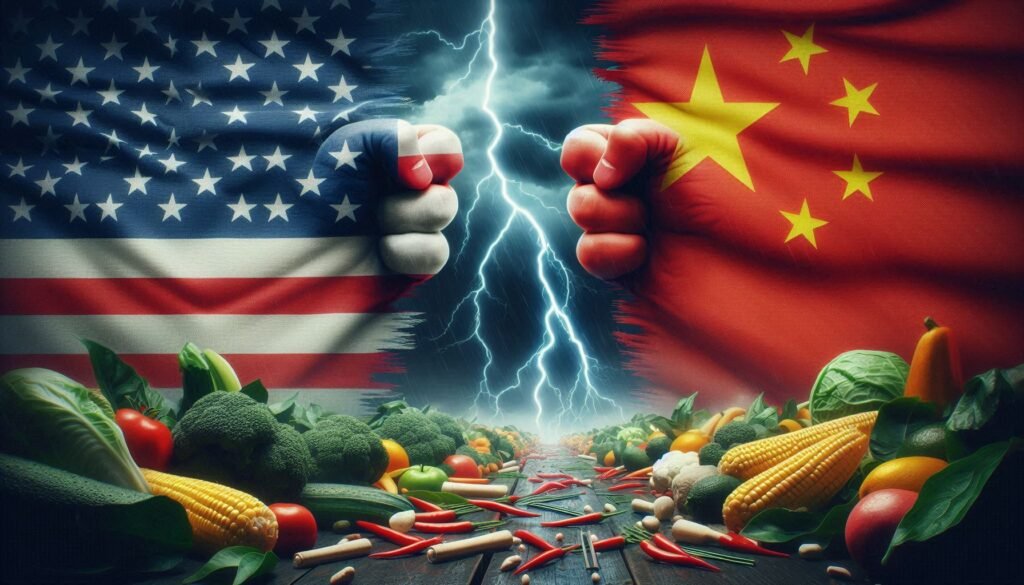If you thought the US-China trade war was just some distant political drama, think again. It’s actually shaking up your grocery cart—especially when it comes to organic food. Yep, that crunchy, pesticide-free, farm-to-table goodness you love is feeling the heat from tariffs, shipping delays, and supply chain headaches. And honestly? It’s making the organic food industry sweat a little.
So, what’s going on behind the scenes? Let’s dig in.
Supply Chains on the Slow Train
Organic food isn’t your average produce aisle stuff. It’s grown with care, certified with a ton of paperwork, and usually comes from a smaller pool of farms. That means when the supply chain hits a snag, organic food feels it faster and harder.
Right now, the US-China trade war has thrown a wrench into the smooth flow of goods. Tariffs on everything from farming equipment to packaging materials have made importing trickier and pricier. Even though the US doesn’t import a ton of organic produce from China directly (it’s less than 5%), the chaos in global shipping routes and trade policies is messing with the whole system.
And it’s not just China. The US depends on organic imports from places like Mexico, South America, and Europe to fill in when local farms can’t keep up—think bananas, avocados, and berries. But tariffs and shipping delays are making it harder to keep those shelves stocked. The result? Some organic goodies might be missing when you hit the store.
Price Tag Drama: Organic vs. Conventional
Here’s a fun twist: you might actually see the price gap between organic and conventional food shrink a bit. Usually, organic produce costs about 53% more than regular stuff—ouch! But tariffs are hiking prices on conventional imports more steeply, which could make organic food look like a better deal by comparison.
Sounds good, right? Well, not so fast. The whole trade war mess is making shoppers nervous. With grocery bills climbing and economic jitters in the air, some folks might cut back on organic purchases just to save a few bucks. So even if organic prices get friendlier, demand could still take a hit.
Farmers, Retailers, and Shoppers—Caught in the Crossfire
The trade war isn’t just a headline; it’s real life for farmers, store owners, and you, the consumer.
- Farmers: Organic farmers in the US are feeling the pinch. They face higher costs for imported equipment and supplies, and with China slapping tariffs on US agricultural exports, their chances to sell abroad are shrinking. It’s like getting squeezed from both ends.
- Retailers: Grocery stores and organic brands are scrambling to find reliable suppliers. Many are turning to local farms to keep the organic aisle stocked, but local supply can’t always cover the demand, especially for out-of-season fruits and veggies.
- Consumers: You might notice your favorite organic snacks are pricier or sometimes out of stock. Shipping delays and certification rules mean that if something doesn’t meet organic standards, it can’t hit the shelves—even if it looks delicious.
What’s Next? A Recipe for Adaptation
The organic food industry isn’t just sitting back and hoping for the best. Here’s what’s cooking:
- Stockpiling and Smart Ordering: Companies are ordering more in advance to dodge future tariffs, but that can lead to temporary gluts or shortages down the line.
- Going Local: There’s a big push to source more organic produce closer to home. It’s great for freshness and cutting shipping headaches, but the US can’t grow everything year-round.
- Tech and Transparency: Better tracking and documentation tools are helping keep the organic certification intact, even when supply chains get messy.
Bottom Line: Organic Food’s Trade War Hangover
The US-China trade war is more than just a political spat—it’s a real challenge for the organic food world. Supply chains are slower, prices are unpredictable, and everyone from farmers to shoppers is feeling the squeeze. While organic food might become a bit more affordable compared to conventional options, the overall uncertainty could slow down the industry’s growth.
So next time you’re picking out that organic apple or kale, remember: there’s a whole global story behind it. And despite the trade war’s bumps, the organic food industry is hustling hard to keep your meals fresh, healthy, and delicious.
Stay tuned—and maybe stock up on those organic snacks while you can!








